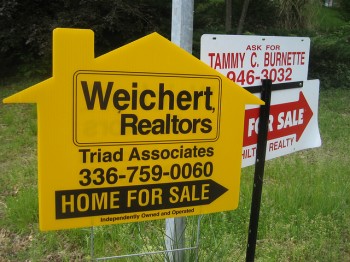How Home Ownership is Decreasing While Home Sales are Up
Home Ownership in the United States is at about 62%. That number is found by analyzing the number of adults who live in US houses, then finding out how many of them have an ownership stake in the house they live in. 62% may not seem like a low number, but it’s the lowest rate since the mid-90’s, and it threatens to go lower still, even as home sales increase.
At least they’ve been increasing until recently. In January, home sales slowed. Different analysts project the rest of 2015 different ways, but one thing is clear: there is a disparity between who is buying homes and who goes on to live in them. A large percentage of recent American home sales go to investors. In many markets, homes are left on the market for 15 days (depending on location), during which time no one but a first time homeowner may bid. Often, the two weeks comes and goes, leaving the sale to be made to an investor, who often pays cash.
This article isn’t meant to make investors look bad. It is meant to highlight how difficult it is for new homeowners to buy that first house, and how this difficulty is keeping new members from entering the American middle class. Homeownership has always been a major first step in American wealth-building. Homeowners are simply less vulnerable than renters. They’re a lot more integrated, long term, in their communities. They are more financially secure. Their children tend to do better, financially, than children whose parents were renters.
While there is still a meaningful market for new construction, tiny homes, steel buildings, and whatnot, buying an existing home has always been the way that social mobility happens for people in the low to lower-middle class. It’s the fulcrum on which individuals secure better jobs, education for their children, and wealth in the form of equity. The personal and mental security that results from homeownership is also profound, meaning that homeowners stand not just to build better quality of life in terms of material resources, they stand to enjoy the life they had a little more, though this is often considered intangible.
At present, homeownership rates are lowest where populations are often densest. Washington D.C., where some of the nation’s lowest standards of living exist a stone’s throw from the White House, has the lowest rate of homeownership anywhere in the country, at just over 42%. States like Vermont have the highest, at roughly 75%. The national average peaked about ten years ago at about 69%. Today’s 62% isn’t bad, historically speaking, but if it continues to fall, it will be much lower than the 20th century average, another sign that as national wealth increases, more and more people are stuck in poverty.
There are many strategies for how to reverse this trend. Economic measures to restore meaningful job growth for unskilled workers, investment in national education standards, land trusts and the like, further subsidized housing for buyers, the demonitization of housing: all these have been suggested or are already being implemented to bring more homeowners into the market. But until there is a major sea change, American homeownership is bound to drop even more, even as more and more homes sell to wealthier individuals.
Guest Author: Lolita Di
















a home is an asset not an investment, if it were a bond it would have junk status.
The best thing for any young person to do is to max out their 401ks, and start actual companies. Not waste money on some wood building.
You can use all these fancy words like fulcrum, community building, whatnot but you aint selling anyone who isnt already sold.